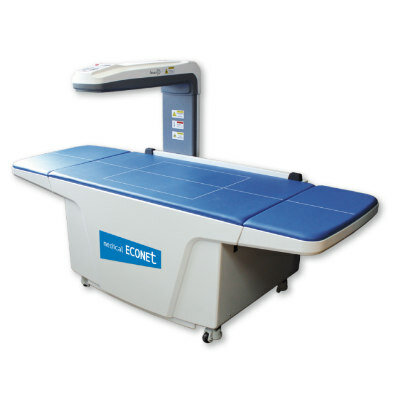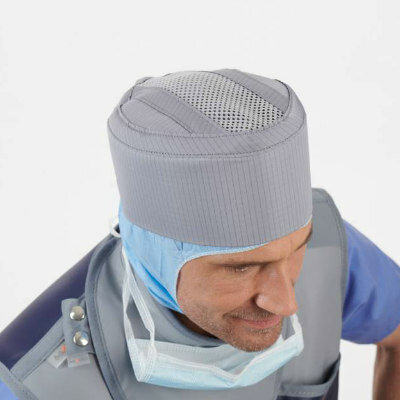World's First 30 Minute Full Body MRI Scan Offers Fast, Accurate and Affordable Cancer Diagnosis
|
By MedImaging International staff writers Posted on 02 Jun 2023 |

A cutting-edge artificial intelligence (AI) solution enhances MR image quality, paving the way for a reduction in scan time and consequently, the cost of MRI procedures. This innovation now makes it feasible to complete a full-body MRI scan in just 30 minutes, a first in the world.
Ezra’s (New York, NY, USA) newest proprietary AI, Ezra Flash, which has recently been granted 510(k) clearance by the U.S. Food and Drug Administration (FDA) for brain imaging, enhances the quality of MRI scans, thereby facilitating rapid, cost-effective cancer detection. The company has developed a fast MRI protocol producing lower-quality images, which are significantly enhanced by Ezra Flash. The AI was trained using Ezra's proprietary dataset of hundreds of thousands of MRI images, sourced from both patients and healthy individuals. Ezra taught the AI to evaluate the essential elements in MRI scans needed to render a complete and accurate image. This capability allows Ezra to improve image quality for high-speed MRI scans, pushing the boundaries of current standards. A multi-step process was used to validate Ezra Flash wherein five radiologists evaluated the performance of the AI both qualitatively and quantitatively. Their expertise played a vital role in selecting an AI model capable of enhancing MRI images without masking any existing pathology.
Ezra provides individuals with preventative, proactive, and continual cancer screening through its Full Body MRI. This allows for the monitoring of potential cancer and over 500 conditions across up to 13 organs, facilitating earlier disease detection. Ezra also incorporates a low-dose chest CT scan, where appropriate, for lung cancer screening and evaluating heart disease risk. Previously, the Ezra Full Body MRI took an hour and cost USD 1,950, but with the implementation of Ezra Flash, it now takes only 30 minutes and costs USD 1,350, marking a price reduction of 30%. Ezra's ultimate ambition is to offer a 15-minute full-body MRI scan at a cost of USD 500, a goal they aim to achieve in the next two to three years.
“The FDA clearance of Ezra Flash is an important landmark – the beginning of a sea change in how medical imaging is used,” said Daniel K. Sodickson, MD, PhD, a leading biomedical imaging researcher who worked closely with Ezra’s team of AI researchers in the development of Ezra Flash. “Progressive increases in imaging speed over time have already resulted in myriad benefits to patients and physicians. Until now, though, imaging has principally been used for the diagnosis and characterization of disease once other signs and symptoms have already developed. Ezra, on the other hand, is using MRI as a tool for early detection of cancer prior to the development of symptoms - a safety net of proactive monitoring that has previously only been available to patients with certain well-established risk factors. Ezra Flash will increase the accessibility of early-warning MRI, and Ezra’s dataset of repeated scans over time will help it to prevent false positives and ensure that the warnings it provides are appropriate and actionable.”
Related Links:
Ezra
Latest MRI News
- PET/MRI Improves Diagnostic Accuracy for Prostate Cancer Patients
- Next Generation MR-Guided Focused Ultrasound Ushers In Future of Incisionless Neurosurgery
- Two-Part MRI Scan Detects Prostate Cancer More Quickly without Compromising Diagnostic Quality
- World’s Most Powerful MRI Machine Images Living Brain with Unrivaled Clarity
- New Whole-Body Imaging Technology Makes It Possible to View Inflammation on MRI Scan
- Combining Prostate MRI with Blood Test Can Avoid Unnecessary Prostate Biopsies
- New Treatment Combines MRI and Ultrasound to Control Prostate Cancer without Serious Side Effects
- MRI Improves Diagnosis and Treatment of Prostate Cancer
- Combined PET-MRI Scan Improves Treatment for Early Breast Cancer Patients
- 4D MRI Could Improve Clinical Assessment of Heart Blood Flow Abnormalities
- MRI-Guided Focused Ultrasound Therapy Shows Promise in Treating Prostate Cancer
- AI-Based MRI Tool Outperforms Current Brain Tumor Diagnosis Methods
- DW-MRI Lights up Small Ovarian Lesions like Light Bulbs
- Abbreviated Breast MRI Effective for High-Risk Screening without Compromising Diagnostic Accuracy
- New MRI Method Detects Alzheimer’s Earlier in People without Clinical Signs
- MRI Monitoring Reduces Mortality in Women at High Risk of BRCA1 Breast Cancer
Channels
Radiography
view channel
Novel Breast Imaging System Proves As Effective As Mammography
Breast cancer remains the most frequently diagnosed cancer among women. It is projected that one in eight women will be diagnosed with breast cancer during her lifetime, and one in 42 women who turn 50... Read more
AI Assistance Improves Breast-Cancer Screening by Reducing False Positives
Radiologists typically detect one case of cancer for every 200 mammograms reviewed. However, these evaluations often result in false positives, leading to unnecessary patient recalls for additional testing,... Read moreUltrasound
view channel
Deep Learning Advances Super-Resolution Ultrasound Imaging
Ultrasound localization microscopy (ULM) is an advanced imaging technique that offers high-resolution visualization of microvascular structures. It employs microbubbles, FDA-approved contrast agents, injected... Read more
Novel Ultrasound-Launched Targeted Nanoparticle Eliminates Biofilm and Bacterial Infection
Biofilms, formed by bacteria aggregating into dense communities for protection against harsh environmental conditions, are a significant contributor to various infectious diseases. Biofilms frequently... Read moreNuclear Medicine
view channel
New SPECT/CT Technique Could Change Imaging Practices and Increase Patient Access
The development of lead-212 (212Pb)-PSMA–based targeted alpha therapy (TAT) is garnering significant interest in treating patients with metastatic castration-resistant prostate cancer. The imaging of 212Pb,... Read moreNew Radiotheranostic System Detects and Treats Ovarian Cancer Noninvasively
Ovarian cancer is the most lethal gynecological cancer, with less than a 30% five-year survival rate for those diagnosed in late stages. Despite surgery and platinum-based chemotherapy being the standard... Read more
AI System Automatically and Reliably Detects Cardiac Amyloidosis Using Scintigraphy Imaging
Cardiac amyloidosis, a condition characterized by the buildup of abnormal protein deposits (amyloids) in the heart muscle, severely affects heart function and can lead to heart failure or death without... Read moreGeneral/Advanced Imaging
view channel
New AI Method Captures Uncertainty in Medical Images
In the field of biomedicine, segmentation is the process of annotating pixels from an important structure in medical images, such as organs or cells. Artificial Intelligence (AI) models are utilized to... Read more.jpg)
CT Coronary Angiography Reduces Need for Invasive Tests to Diagnose Coronary Artery Disease
Coronary artery disease (CAD), one of the leading causes of death worldwide, involves the narrowing of coronary arteries due to atherosclerosis, resulting in insufficient blood flow to the heart muscle.... Read more
Novel Blood Test Could Reduce Need for PET Imaging of Patients with Alzheimer’s
Alzheimer's disease (AD), a condition marked by cognitive decline and the presence of beta-amyloid (Aβ) plaques and neurofibrillary tangles in the brain, poses diagnostic challenges. Amyloid positron emission... Read more.jpg)
CT-Based Deep Learning Algorithm Accurately Differentiates Benign From Malignant Vertebral Fractures
The rise in the aging population is expected to result in a corresponding increase in the prevalence of vertebral fractures which can cause back pain or neurologic compromise, leading to impaired function... Read moreImaging IT
view channel
New Google Cloud Medical Imaging Suite Makes Imaging Healthcare Data More Accessible
Medical imaging is a critical tool used to diagnose patients, and there are billions of medical images scanned globally each year. Imaging data accounts for about 90% of all healthcare data1 and, until... Read more
Global AI in Medical Diagnostics Market to Be Driven by Demand for Image Recognition in Radiology
The global artificial intelligence (AI) in medical diagnostics market is expanding with early disease detection being one of its key applications and image recognition becoming a compelling consumer proposition... Read moreIndustry News
view channel
Bayer and Google Partner on New AI Product for Radiologists
Medical imaging data comprises around 90% of all healthcare data, and it is a highly complex and rich clinical data modality and serves as a vital tool for diagnosing patients. Each year, billions of medical... Read more




















